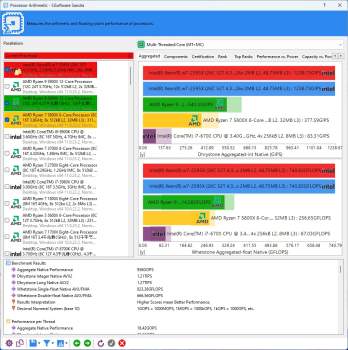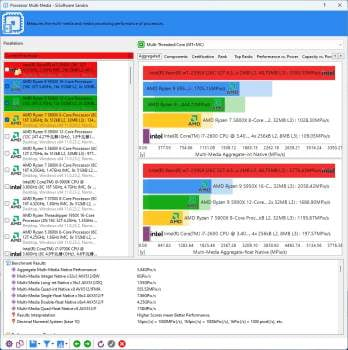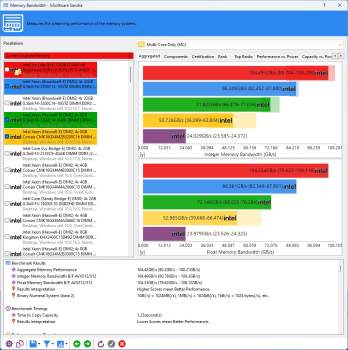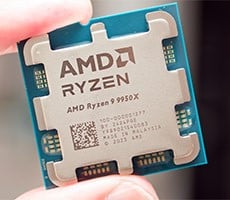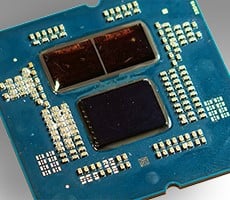Intel Xeon w7-2595x Review: All P-Core Pro Workstation Power
When the Windows installation was complete, we installed all of the drivers necessary for our components, disabled auto-updating and OneDrive, and installed all of our benchmarking software. When that process was done, we performed a disk clean-up, cleared any temp and prefetch data, processed idle tasks, and optimized all of the SSDs using Windows' built-in tools. Finally, we enabled Windows Focus Assist to minimize any potential interruptions and let the systems reach an idle state before invoking any tests.
We should also note that we've completely revamped our test beds for this latest round of processor launches and all of this data is freshly generated. All systems were as up-to-date as possible with the latest BIOS/UEFI firmware, drivers, software and updates as of the time of publication.
HotHardware's Test Systems:
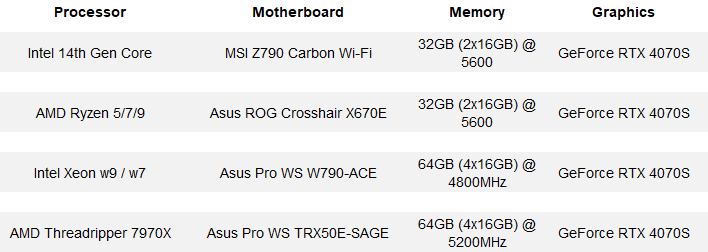
SiSoft SANDRA 2023 Benchmarks
| Intel Xeon w7-2595X Processor Arithmetic |
Intel Xeon w7-2595X Multi-Media |
| Intel Xeon w7-2595X Memory Bandwidth |
Intel Xeon w7-2595X Cache & Memory |
We should note that the W790 platform and Intel's Xeon W processors support up to 8-channel memory, which would double the peak bandwidth we show you here. The motherboards we had on hand (and which were provided by Intel) only support up to quad-channel configs, however.
AIDA64 Memory Bandwidth, Memory Latency & Cache Latency
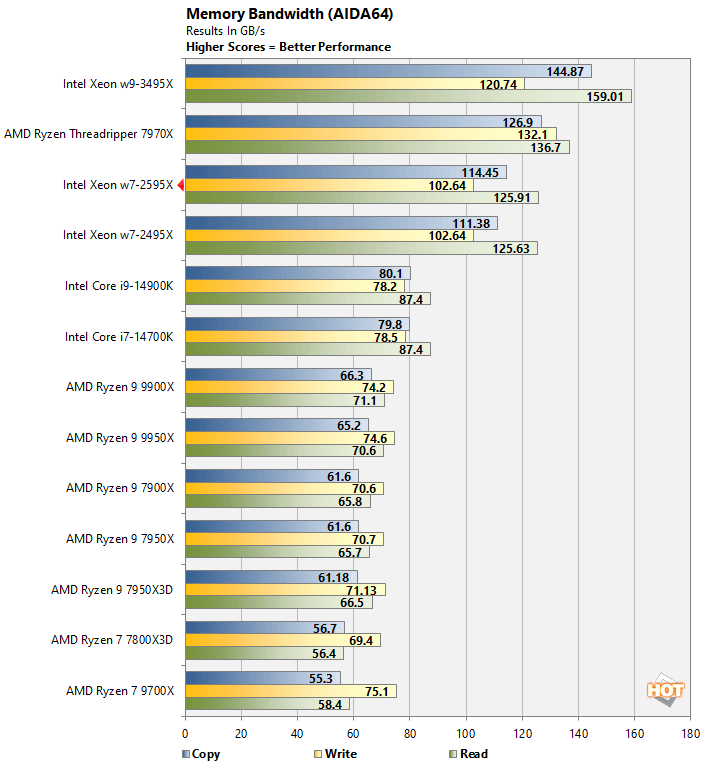
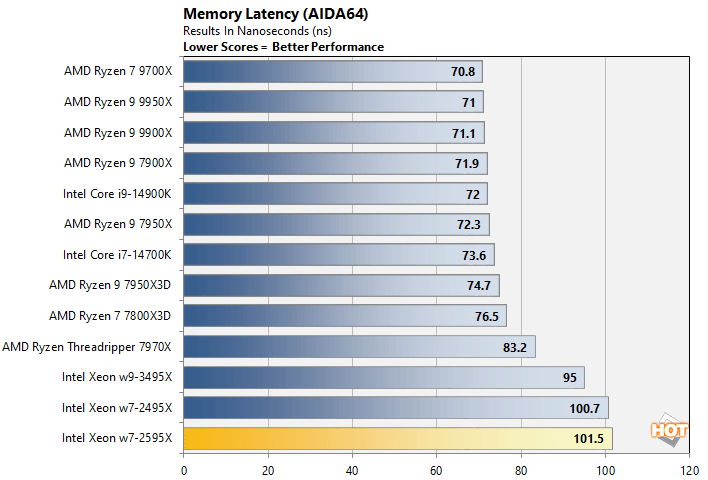
Although all of the Xeon W systems used the exact same memory kit, configured with the exact same timings, latency varied somewhat with the Xeon w7-2595X bringing up the rear.
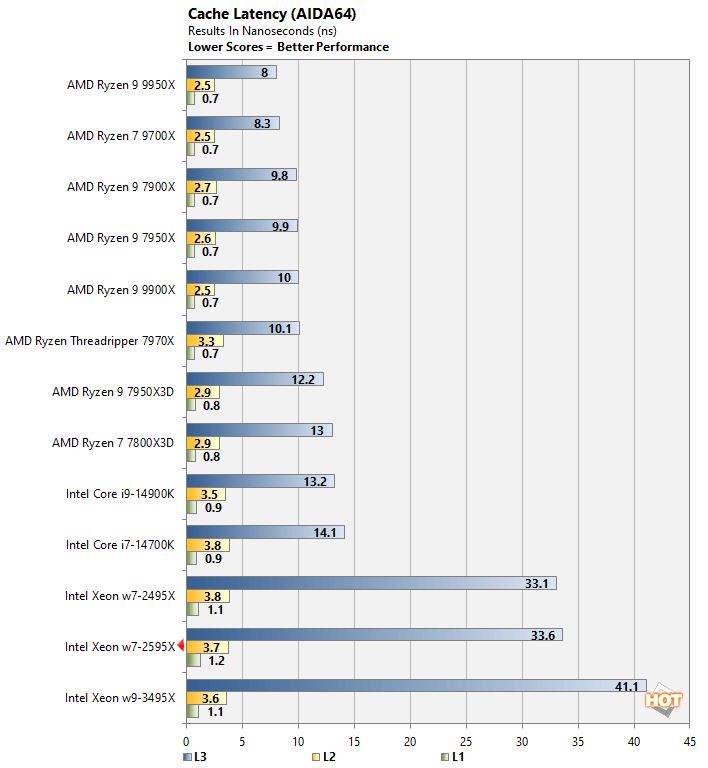
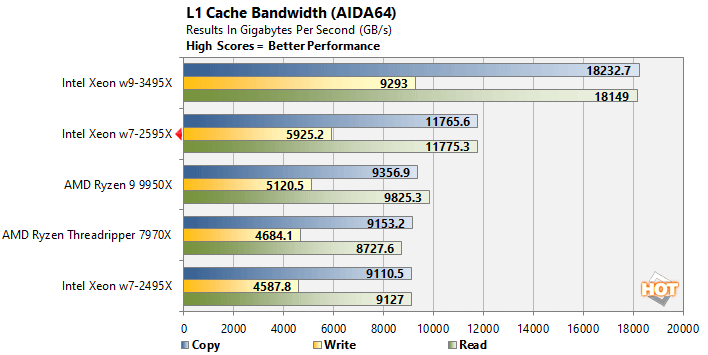
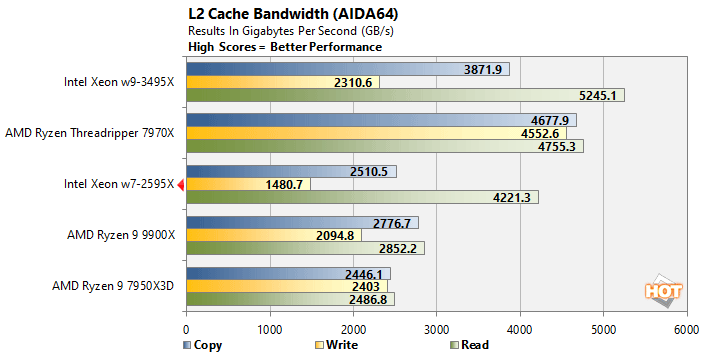
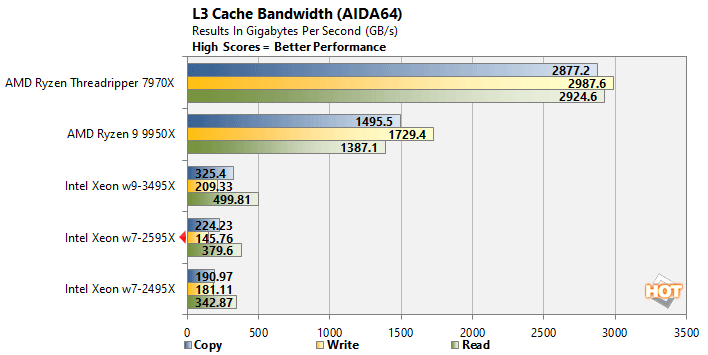
L1 and L2 bandwidth (as reported by AIDA) with the many-core workstation processors like the Xeon w7-2595X are all over the map, but generally higher than their mainstream cousins. L3 bandwidth with Intel's Xeon W processors, however, is only a fraction of what the latest Threadrippers or even the Ryzen 9000 series can offer.
Geekbench v6.3 CPU Benchmark
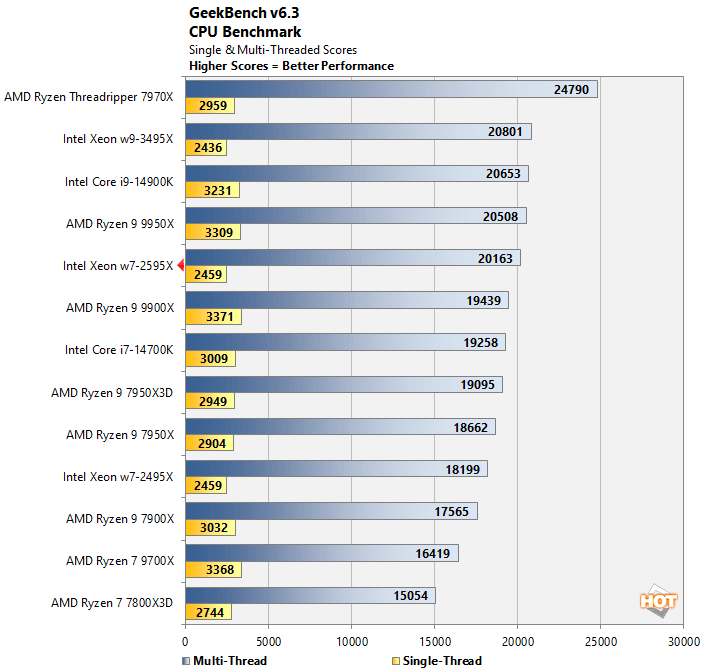
Intel's Xeon w7-2595X lands just being the Ryzen 9 9950X here, and well behind the Threadripper 7970X. Though the Xeon w7-2595X has more cores (and support for more threads than the 9950X), the Xeon w7-2595X's lower frequencies hold it back somewhat. Multi-thread performance is still technically strong, but single-thread performance is relatively low, again, due to those lower peak frequencies.
UL PCMark 10 Applications Benchmarks
Next, up we have some full-system testing with PCMark. We're reporting all test results from the PCMark 10 Applications benchmark suite, which uses actual Microsoft Office applications, in addition to the Microsoft Edge browser. The workloads are specific to each Office application (Word, Excel, and PowerPoint), and the Edge tests simulates real-world web browsing.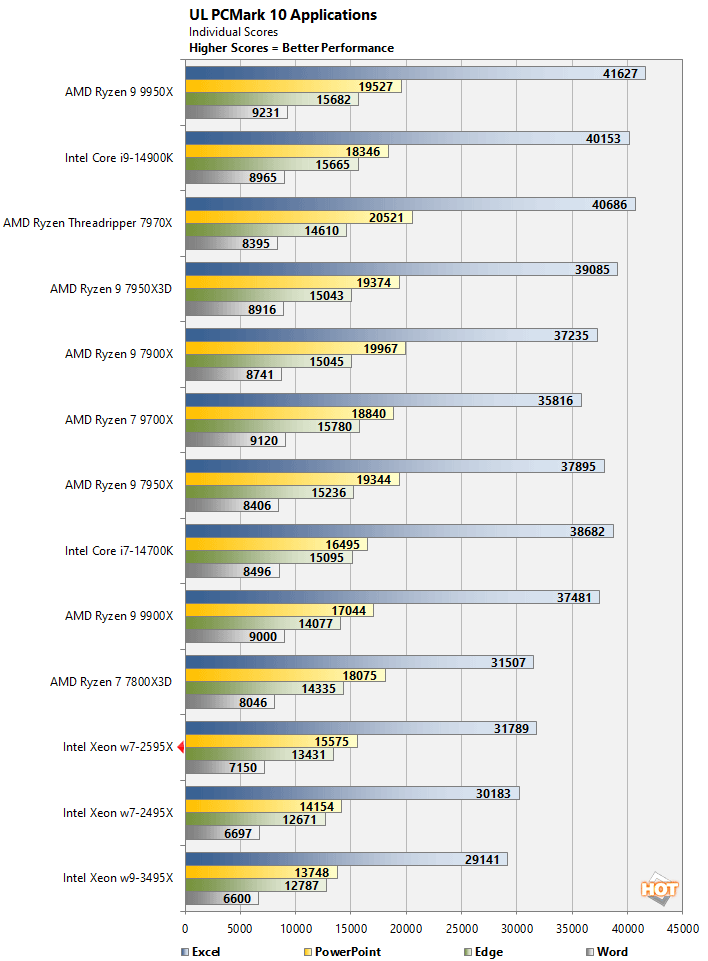
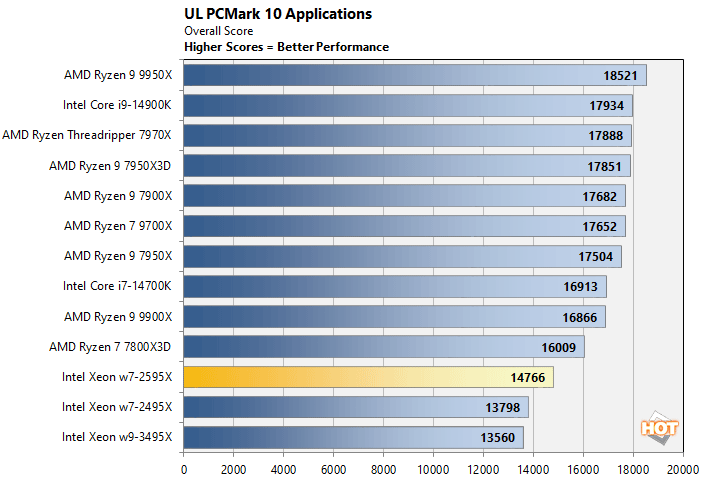
The Xeon W systems trail all of the other platforms overall in these relatively light-duty Microsoft Office workloads. That's not to say the Xeon W's are slow -- they're obviously plenty fast for this type of work -- but when all of their cores aren't fully utilized, they won't shine relatively to higher-clocked parts, utilizing the latest core microarchitectures. Looking specifically at the Xeon w7-2595X result though, shows a nice performance uplift versus the previous gen.
Bapco Crossmark Benchmark
Crossmark is a cross-platform benchmark from Bapco that's available for Windows, Android, iOS and MacOS. Like PCMark, Crossmark measures overall system performance and using real-world applications. It provides an overall score based on the results of its Creativity and Productivity benchmarks and system responsiveness tests.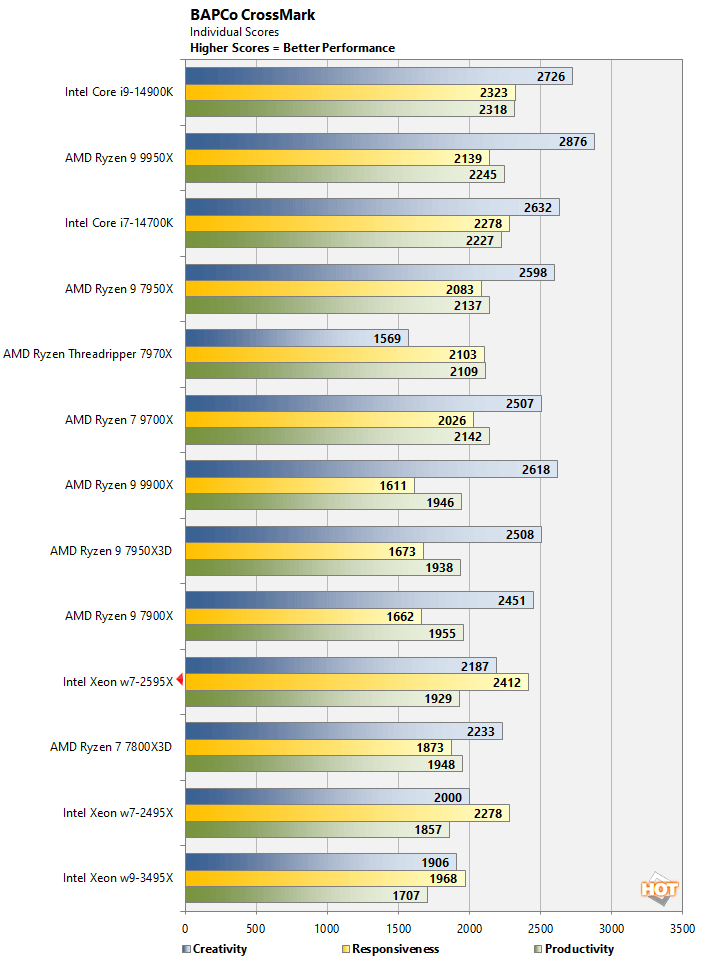
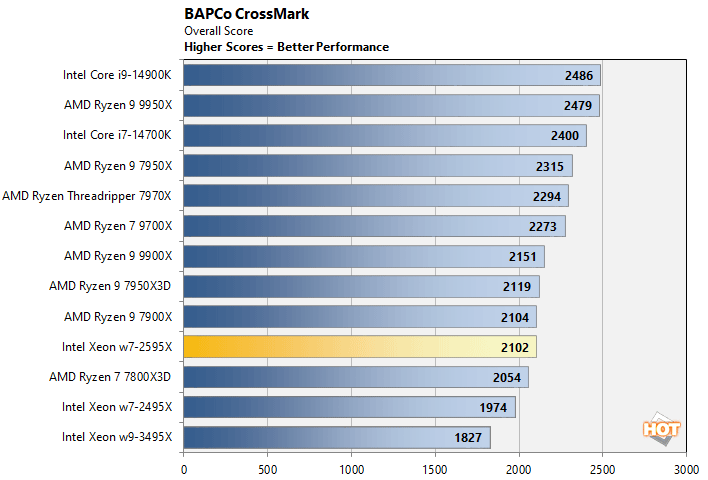
The Xeon W processors also trailed most of the other platforms in Bapco's Crossmark benchmark. The Xeon w7-2595X is able to overtake the Ryzen 7 7800X3D, and it outpaces the previous-gen Xeon W processors yet again, but for the same reasons it doesn't shine in PCMark, the Xeon w7-2595X mostly trails here.
Browser & Web App Benchmarks: Jetstream 2.2 And Speedometer 3
These benchmarks measure performance of an array of browser-based technologies used on modern, rich web applications. Scores in these benchmark are an indicator of the performance users would see when browsing the web and running advanced web apps. All of the systems were tested using the latest version of Google Chrome, with default browser settings, on a clean, fully-updated install of Windows 11.
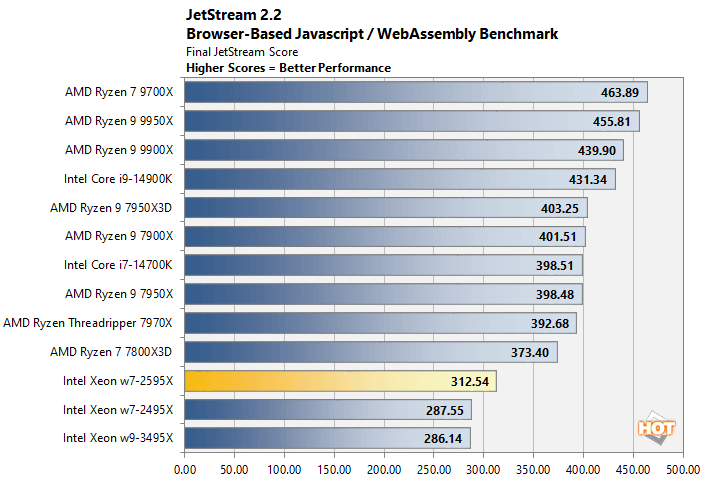
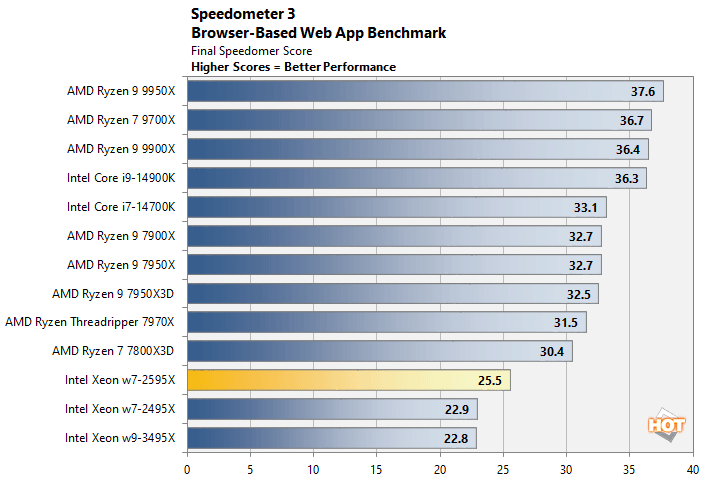
7-Zip Data Compression & Decompression Tests
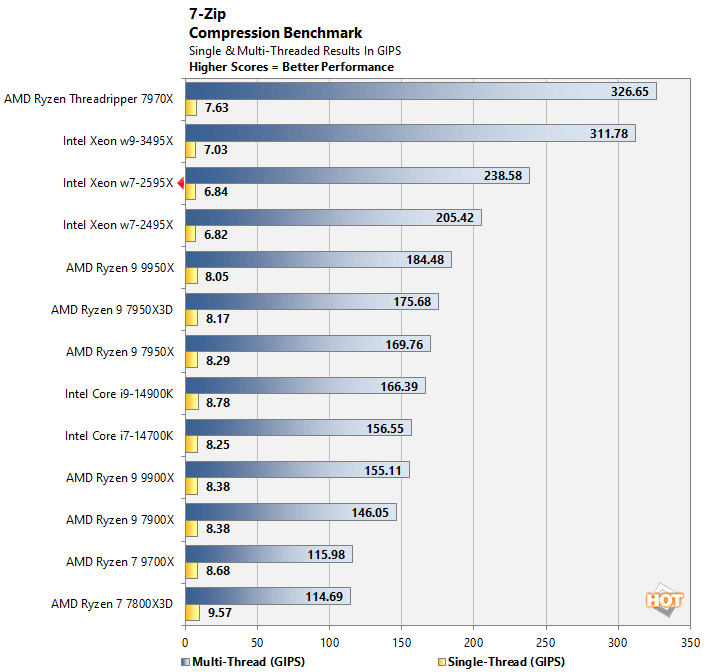
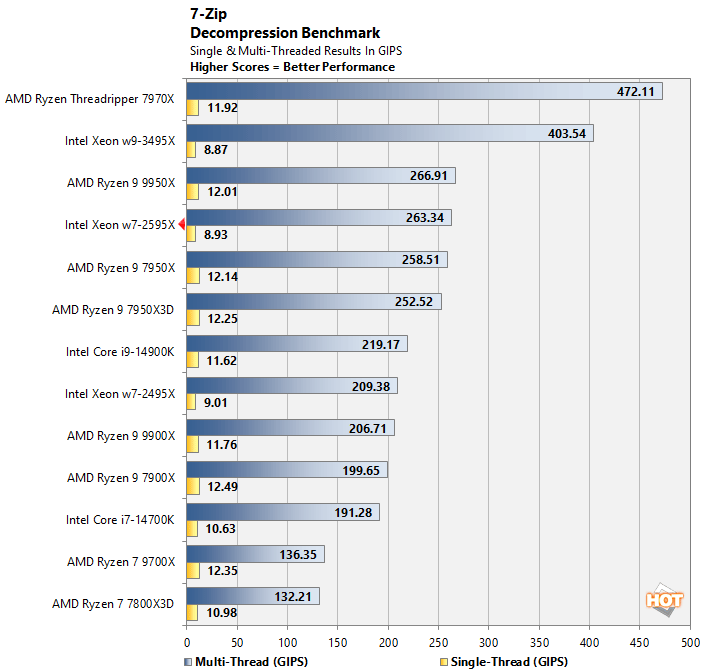
In these highly-threaded compression / decompression workloads, the Xeon w7-2595X performs well. Only the higher core count chips offer more performance in the multi-threaded compression test. In the decompression test, the Ryzen 9 9950X pulls ahead slightly, once again, due to its ability to hit much higher frequencies. The Xeon w7-2595X's single-thread performance here, however, mostly trails the competition.

